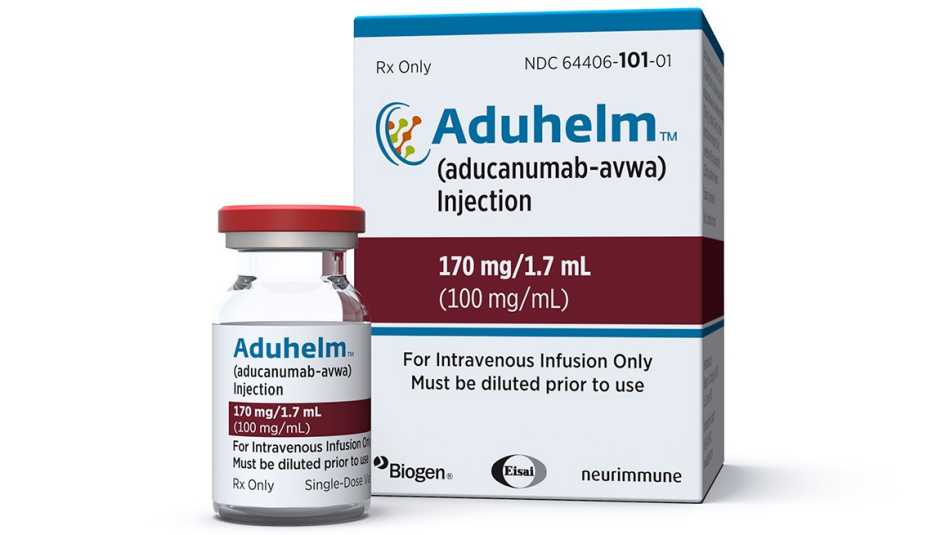Staying Fit


Richard Isaacson's phone has been ringing off the hook; his inbox alerts him of a new email every few minutes. On the other end are patients and their caregivers, teeming with questions about aducanumab, the first Alzheimer's therapy to gain federal approval in nearly 20 years.
"It's been almost impossible to keep up with,” says Isaacson, who is a neurologist and director of the Alzheimer's Prevention Clinic at Weill Cornell Medicine and New York-Presbyterian Hospital. “We have a very busy clinic, and I've never had anything like this before.”


AARP Membership— $12 for your first year when you sign up for Automatic Renewal
Get instant access to members-only products and hundreds of discounts, a free second membership, and a subscription to AARP the Magazine.
Aducanumab, which will be sold under the brand name Aduhelm, was cleared by the U.S. Food and Drug Administration (FDA) on June 7, making it the first medicine on the market that aims to slow the progression of Alzheimer's disease, not just treat its symptoms. But its unconventional approval, which went against an advisory committee's recommendation, has left people all over the country with questions: Who can get it? Is it safe? And how much will it cost?
Here's what we know so far about aducanumab — and what still needs to be learned.
1. It clears amyloid in the brain …
But will patients see a benefit in thinking, memory and everyday living?
Amyloid plaques are a defining feature of Alzheimer's disease. These sticky clumps of protein form between the nerve cells in the brain and disrupt their function, eventually killing them. One hypothesis among researchers is that if you can get rid of these toxic plaques, you can keep the brain cells from dying and curb cognitive decline. And that's exactly what aducanumab is designed to do.
The drug, a monoclonal antibody, proved in clinical trials to reduce amyloid in the brain by sending a signal to the body's immune system to clear the plaques. It's still unclear, however, whether patients will see a benefit from their removal — and that is one reason the drug's approval was opposed by some dementia experts. The FDA states that the “reduction in plaques is reasonably likely to result in clinical benefit.” Experts argue the data backing this inference is inconclusive.
"So if you take this drug, you're taking a risk that's unusual when you take a drug, and that risk is the drug may have no benefit,” says Jason Karlawish, a professor in the Department of Medicine at the University of Pennsylvania Perelman School of Medicine and director of the Penn Memory Center.
While approving the drug, the FDA has also ordered the drug's maker, Biogen, to conduct another study to verify the medicine will do what it promises: provide relief to patients suffering from the debilitating disease. If the additional trial “fails to verify clinical benefit,” the agency says it can withdraw approval of the drug.


































































More From AARP
The Alzheimer's Drugs Showing Early Promise
Along with Eli Lily’s donanemab, researchers say several new therapies offer hopeWhat Are the Early Warning Signs of Dementia?
How to spot early indicators that your loved one may have Alzheimer’s or dementia
Banish Caregiver Burnout by Keeping Loved One With Dementia Engaged
Find tasks and activities to make those with memory challenges feel useful